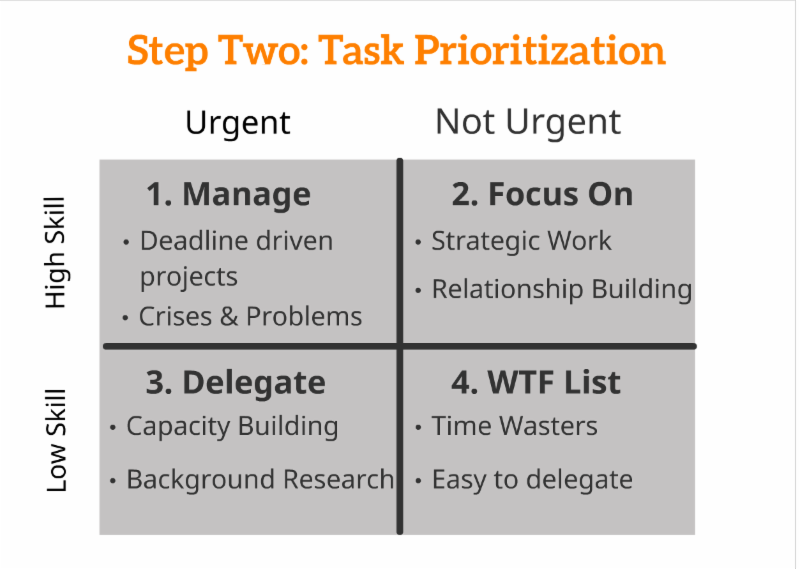Build Capacity and Protect Profit Margins by Delegating Tasks
We get it – sometimes it is easier to do it yourself. You are saving time by not having to stop your day to explain and supervise a task. You know it will be done just the way you like it – you never have to worry about someone saying the wrong thing to an important client. Most importantly, you don’t have to suffer the disappointment and hassle of having to redo something once that person makes a mess of the entire project. Just do it yourself – after all, it feels great to know you are the star of the show.
How does this typical mindset hold you back?
Cranking out tasks you can accomplish feels good in the moment, however not delegating to your team has long term consequences. You won’t be able to grow your business/department, your people will not be developing new skills, and you will not be as profitable as you could be. When you decide not to delegate you are making a choice on how much you are going to pay for the completion of that task. Is it going to be completed at your hourly rate ($50/hr. if you make $100,000) or at a lower rate? Think about how many tasks you are doing that can be done cheaper and many times even better. In addition, think about what you could do with the time that you gain;
- Higher level strategic thinking
- Critical relationship building
- Pushing a prospect to close
Be mindful of your paygrade and decide where your skills can impact profit margins.
In order to delegate effectively, we believe that there are seven critical steps:
- Complete a Task Analysis: Get clear on how your time is currently being used and do the same for those that you can delegate to.
- Prioritize Your Tasks into Four Buckets: Begin to delegate the Low Skilled/Urgent (with some good coaching) and the Low Skilled/Not Urgent (immediately).

- Assess Your Team: Soundboard recommends using an Ability/Willingness framework. Start to delegate to your “Stars” (high willingness/high ability) and your “Eager Beavers” (high willingness/lower ability).
- Have the Right Conversations: When delegating a new skill or in a high risk situation practice your coaching skills. The more an individual feels connected to a task, the more discretionary effort you will achieve.
- Set Commitments: Make sure you set an agreement, not a request. Outline who will do what and by when.
- Use a Tracking System: You shouldn’t be stuck monitoring someone’s every move. Have regular check-ins and find a system that works for you. (The Soundboard Team uses Trello.)
- Show Acknowledgment: Give feedback after a task is completed to reinforce competency and future expectations.
Let us know how we can support you thru these important steps as you continue to increase the capacity and profitability of your team!



